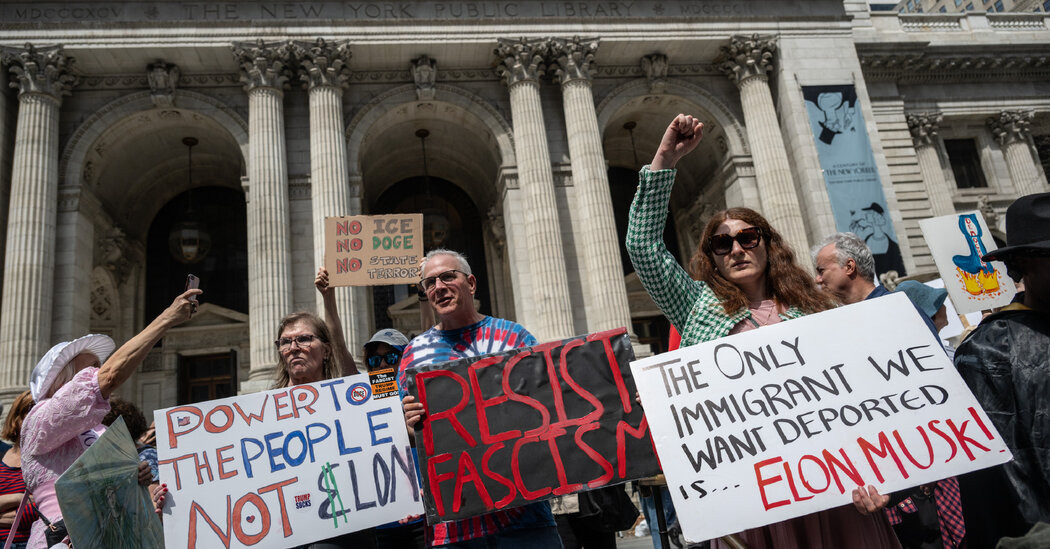

Protesters across the country on Saturday began taking to the streets to demonstrate against President Trump’s leadership and agenda, just two weeks after mass demonstrations were held in cities and towns nationwide against the new administration.
More than 700 events were planned on Saturday, from New York City to Jacksonville, Fla., to Los Angeles, according to the organizer, the group 50501, which said it was seeking to defend civil liberties and fight against what it said were authoritarian actions of the Trump administration.
Although many of the events were traditional protests, many also were intended to unite local communities through activities such as food drives. Mass protests during President Trump’s first term, like the Women’s March, often focused on a single topic, but demonstrators on Saturday expressed outrage on a wide range of issues.
In Washington, just a few feet north of the White House, hundreds gathered to berate the administration for not bringing Kilmar Abrego Garcia, the Maryland man who was wrongfully deported to El Salvador, back to the United States.
Aaron Burk, whose girlfriend took a federal buyout from the Department of Energy, said he was worried that the administration would not stop at deporting undocumented immigrants without due process and would imprison and deport U.S. citizens.
“Where does it stop?” he said. Mr. Burk added that his daughter is transgender and that he was most concerned about the dehumanization of minorities.
In Jacksonville, Fla., hundreds took to the streets to protest a number of causes, including the president’s attacks on the L.B.G.T.Q. community and the government’s desire to alter the Endangered Species Act.
“We are losing our country,” said one demonstrator, Sara Harvey. In the last few months, she said she had protested the federal job cuts led by Elon Musk and joined the nationwide protests on April 5.
“I’m worried for my grandchildren,” she said. “I do it for them.”
A celebration in Concord, Mass., to commemorate the 250th anniversary of the beginning of the American Revolution was not part of the organized network of protests, but some people took the occasion to draw parallels between then and now.
Conan Walter, 65, stood on the Old North Bridge holding a large poster with the words “Stop fascism now” scrawled across.
“This celebration is about us getting out from under the King of England’s authoritarian rule,” Mr. Walter said. “That rule is trying to make a comeback today, and it’s important that people step up against that and meet the challenge.”
Nichole Manna contributed reporting from Jacksonville, Fla., and Lila Hempel-Edgers from Concord, Mass.



